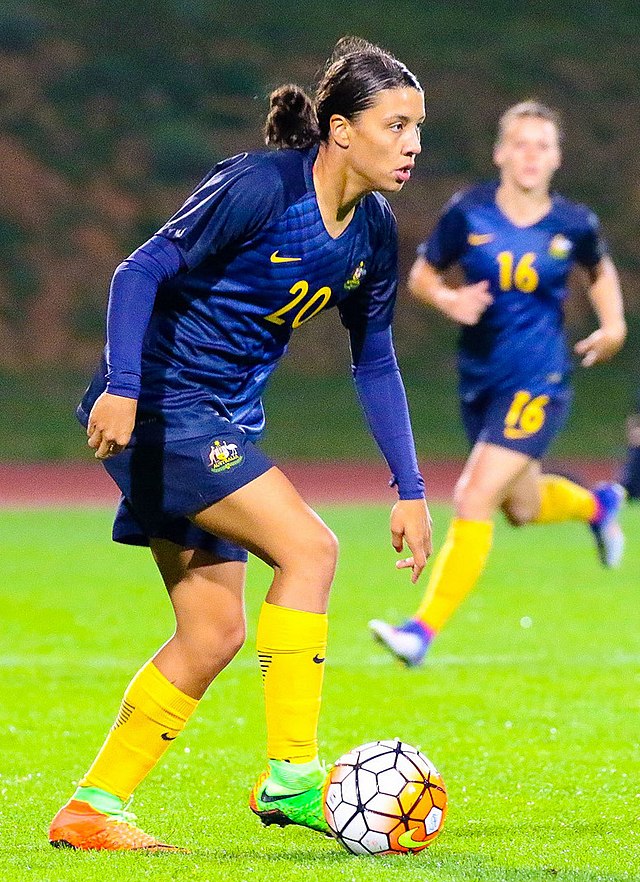For the first time in over 30 years, the United States of America is the proud host of the FIFA World Cup, along with its neighbors, Canada and Mexico. The tournament is set to take place between June 11 and June 19, 2026 across 16 cities in North America. In the United States, host cities include Atlanta, Boston, Dallas, Houston, Kansas City, Los Angeles, Miami, New York, New Jersey, Philadelphia, Seattle and San Francisco.
The nine-day tournament will include 104 games, and for the first time ever, 48 teams will participate. Normally, the tournament consists of 32 teams, but as demand for soccer grows, more countries are newly included. Nations such as Jordan and Uzbekistan are making their World Cup debuts.
Controversies surrounding the World Cup have been recently brought to light, though. From a health standpoint, the extreme summer heat in many of the host cities like Los Angeles and Mexico City has raised serious concerns regarding the players’ safety. The FIFPRO, FIFA’s worker’s union, has been continuously advocating for regulations on intense heat play.
Politically, actions taken by the Trump administration have left international fans conflicted on whether they should attend the games. The increase of discriminatory laws, specifically anti-LGBTQIA+ aggression, has raised questions about the safety and level of comfort fans will face should they travel to watch the sport in person.
Additionally, many fans’ paramount fear centers around President Trump’s immigration policies. Further, the President has proposed travel bans on several nations, and if these exclusions are executed and continue into 2026, it would potentially prevent fans and possibly entire teams from attending the World Cup.
Similarly, the increase in ICE raids throughout America has created a sense of international unrest. Many fans feel alarmed at the thought of traveling to the United States and having to deal with the impact that those raids have on communities. Online, the movement #Boycott2026 has been trending. The protest inquires whether the tournament can truly be considered a “world” cup if parts of the world may be excluded from enjoying the sport they love.
Although farther in the future, the 2028 Los Angeles Olympic Games are facing issues akin to those of the 2026 World Cup. Just like the soccer tournament, doubts regarding America’s inclusion of LGBTQIA+ athletes in events have surfaced. There is speculation surrounding rumors of an executive order banning transgender athletes from participating in any sporting event, and possibly barring them from entering the U.S. for a competitive event altogether. Publicly, the Trump administration seems most concerned about including transgender athletes in women’s sports, but if authorized, the executive order would ban transgender athletes from both men’s and women’s categories.
Worries about Los Angeles’ budget and infrastructure have also become apparent. The set budget for the games is around seven billion dollars. However, skeptics doubt that it is feasible to obtain the desired scale of the event with this budget. Some estimate that the total project could cost upwards of $50 billion. Regarding infrastructure, Los Angeles Mayor Karen Bass proposed significant budget cuts for the Department of Transportation in April of 2025. If passed, the department’s workforce would be reduced by nearly 25%, rendering it difficult to get around the city on public transportation.
The concerns do not end there. Following the 2025 Los Angeles wildfires, many have grown apprehensive over the possibility of another grand scale natural disaster that could impact the games. Humanitarians have begun speaking out about the potential displacement of homeless people. Los Angeles County has a homeless population of over 72,000 people, according to the Los Angeles Homeless Services Authority, and many anticipate that these people will be moved from the city to create a better façade for the games.
While America is being heavily criticized as these two major sporting events approach, it is important to remember that the main goal of these sensational athletics events is to promote international unity through shared love for the art of athletics. Hopefully, both the World Cup and the Olympic Games find a way to bring the world together instead of escalating existing tensions.




